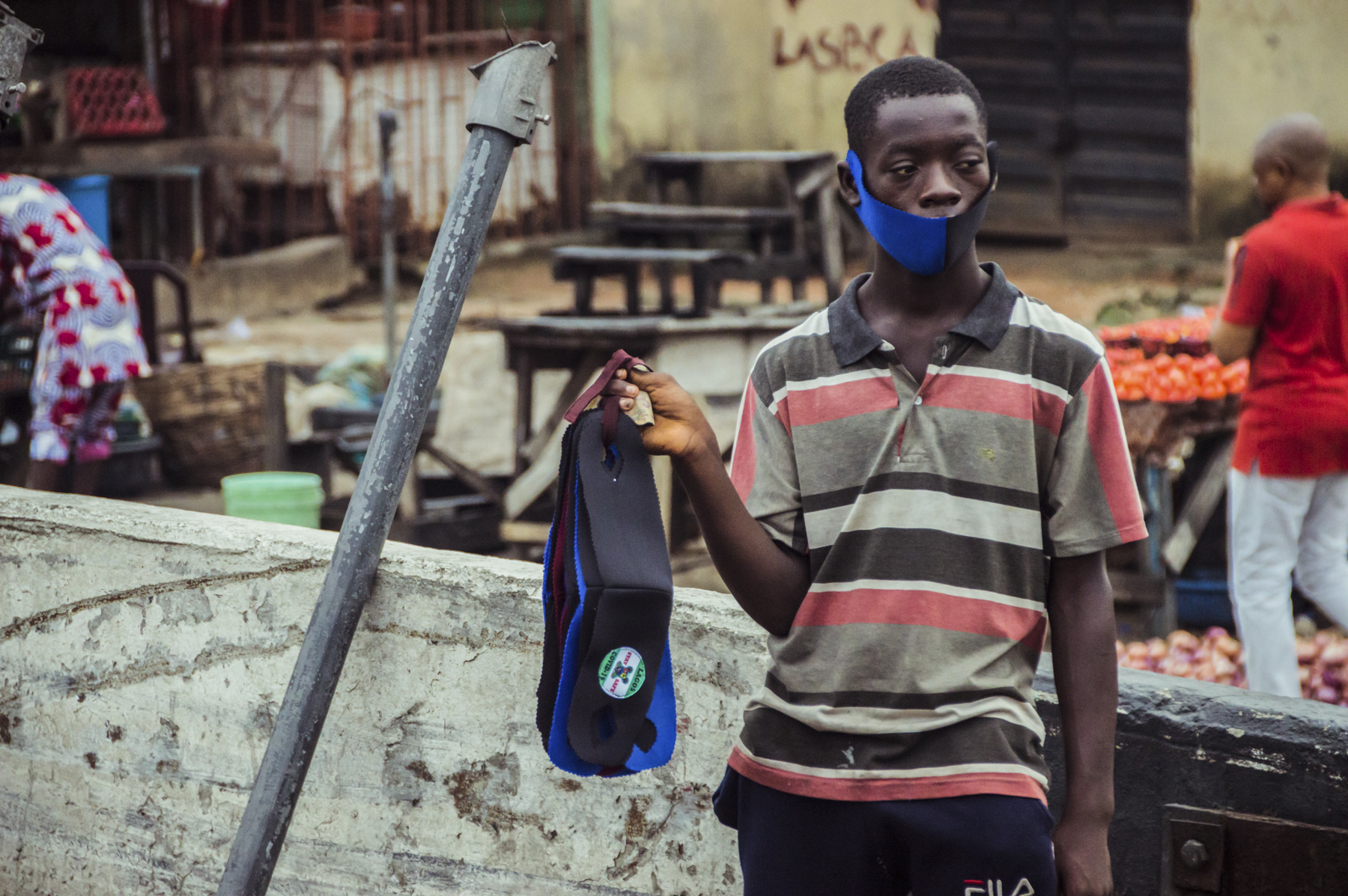A Nigerian teenager hawking masks in traffic. Mask hawkers have become a common sight in Nigeria. Since the mandatory wearing of the face cover was announced by the government, many Nigerians survive by selling masks.
TEXT BY SARATU O. SAMANDE, ESQ.
STREET PHOTOGRAPHS AND CAPTIONS BY DESMOND OKON
“It is only during a storm that a tree knows how strong it is.”
~Matshona Dhliwayo
The new coronavirus hit the world as a storm in the first quarter of 2020. In order to contain the spread of COVID-19, the Nigerian president, Muhammadu Buhari, first announced a lockdown on March 29 in three key states, namely, Lagos, the Federal Capital Territory (FCT), and Ogun State. The remaining states in Nigeria also imposed lockdowns to prevent community spread of the virus. Citizens were encouraged to stay at home, except for those who provided essential goods and services. Movement within the states and interstate travel was prohibited during the lockdown. Those who tested positive for COVID-19 were isolated in hospitals and designated treatment centers throughout the nation.
When the lockdown was first announced, I was excited to have extra time to tackle some uncompleted projects. I set goals for the lockdown season, such as decluttering my house to enable me to give out unwanted items; completing my continuing legal education courses online; improving my brand and skill as a saxophonist; promoting my debut album, In His Time by TaSara; personal development; weight loss; and finishing some books I started reading in the past. I had a daily schedule to keep me busy, and I was very productive during the first two weeks of the lockdown.
Then the lockdown was extended, as the number of infected persons continued to rise daily and the virus continued to spread to other states. At this point, people started to get tired of staying at home. The news and social media became saturated with information on COVID-19, and this negative information became overwhelming. As the number of infections and deaths worldwide continued to rise and people began to feel imprisoned in their homes, the atmosphere became filled with fear, anxiety, and uncertainty.
I too felt overwhelmed by all the negative information, and at a point, I stopped reading WhatsApp messages and anything related to COVID-19, except for watching the daily news to keep informed of happenings globally. I noticed that people were depressed because they couldn’t go to work, earn a living, carry on their normal activities, or socialize, and because they had to put their plans or projects on hold indefinitely. Nigerian citizens were starting to live in despair. I decided to be a voice of hope by posting videos of myself playing the saxophone on social media with a message of encouragement, right from my home. I began to receive positive feedback on these posts, and I found fulfillment in encouraging others to keep hope alive and look up to God, since religion plays a huge role in Nigerian and African culture.
I started this article with a quote by Matshona Dhliwayo: “It is only during a storm that a tree knows how strong it is.” In fact, the coronovairus pandemic has revealed that the Nigerian health sector is not very strong. Compared to other countries, our capacity to test, manage, and treat the coronavirus is grossly inadequate. For many years, the Nigerian government neglected to develop the health sector because of the option of travelling abroad for medical treatment. However, during the COVID-19 pandemic, this option has been unavailable, forcing the government to realize that developing the health sector is a priority.















